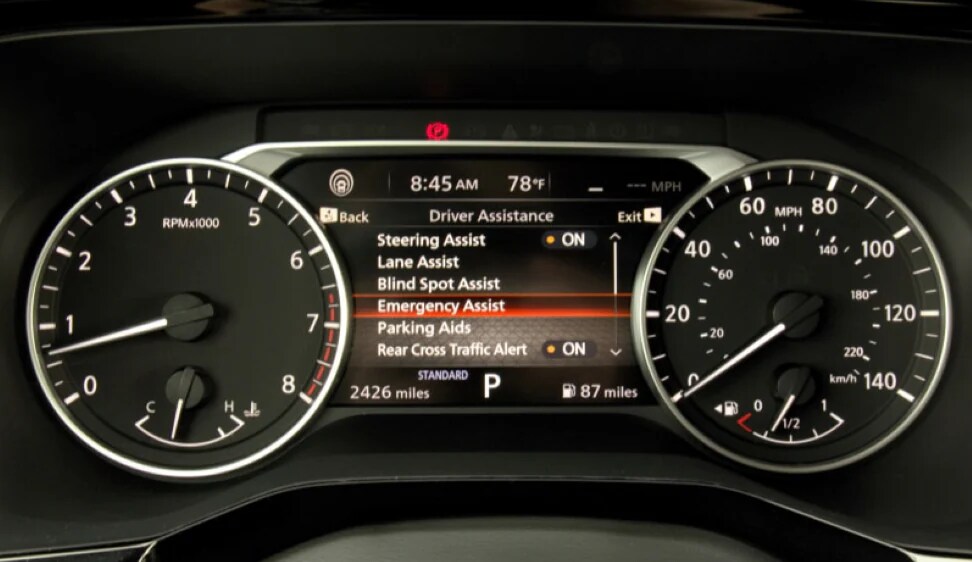How Many Miles Is Too Many? A Guide to Used Car Mileage
When shopping for a used car, one of the most critical factors to consider is mileage. But how many miles are too many for a used car? This guide will walk you through everything you need to know about used car mileage, including what constitutes good mileage, high mileage, and how mileage affects a car's overall value.
What Is Good Mileage for a Used Car?
A general rule of thumb for car mileage is that the average vehicle accrues about 10,000 to 12,000 miles per year. To determine if a used car has good mileage, divide the odometer reading by the car's age. For example, if you're looking at a 5-year-old car, a good mileage range would be between 50,000 and 60,000 miles. Cars with lower annual mileage may have less wear and tear, making them more appealing. However, other factors like make, model, maintenance history, and driving conditions should also be considered.
What Is Considered High Mileage on a Used Car?
Traditionally, 100,000 miles has been considered a cutoff point for high mileage. Vehicles with over 100,000 miles were once thought to be nearing the end of their life. However, advances in automotive technology have shifted this perspective. Many modern cars can last well beyond 100,000 miles with proper care, and some brands like Toyota and Honda are known for regularly exceeding 200,000 miles.
While 100,000 miles is still a point where cars might start needing more frequent and expensive repairs, it's not the definitive end of a car's lifespan. In fact, cars that have been driven mainly on highways can handle high mileage better than those used primarily for city driving, as highway driving causes less wear and tear.
Why Does Used Car Mileage Matter?
Mileage is a good indicator of a car's wear and tear, but it's not the only factor to consider. Every mile driven contributes to the vehicle's overall condition, but the way the car was driven and maintained plays a significant role. For instance, a 3-year-old car with 140,000 miles may have been driven primarily on highways and might be in better shape than a 10-year-old car with 60,000 miles that saw mostly stop-and-go city traffic.
How Many Miles on a Used Car Is Too Much?
There's no one-size-fits-all answer to this question. A well-maintained car with 150,000 miles may still have plenty of life left, especially if it's from a brand known for durability. However, if a car has a poor maintenance history or several previous owners, high mileage could signal potential future problems. When considering a high-mileage car, it's wise to hire a mechanic for a professional inspection.
Average Mileage for Used Cars on the Road
As mentioned earlier, the average car accrues 12,000 miles annually. If you're looking at a 10-year-old vehicle, you can expect it to have about 120,000 miles. Anything significantly higher could be considered high mileage, but remember that low mileage isn't always better. If a car has ultra-low mileage, it may have sat unused for extended periods, which can cause its own set of problems, such as engine or brake issues due to inactivity.
How Does Mileage Affect Used Car Prices?
Mileage plays a significant role in the price of a used car. A vehicle with lower mileage will typically command a higher price than one with high mileage, all other factors being equal. For example, if two cars of the same make, model, and year are compared, one with 30,000 miles and one with 90,000 miles, the lower mileage car will generally be more expensive because it has undergone less wear and tear. However, high-mileage cars can still offer good value if they have been well-maintained.
What Mileage Should You Steer Away From?
While many modern cars are designed to last at least 150,000 to 200,000 miles, vehicles that are approaching or exceeding these numbers may start requiring costly repairs. Diesel engines, on the other hand, are known for lasting longer than gasoline engines, so higher mileage on a diesel vehicle may not be as much of a concern. Additionally, some brands, such as Honda and Toyota, are renowned for producing long-lasting vehicles, making higher mileage less of a red flag for these models.
Should You Consider Certified Pre-Owned Vehicles?
If you're concerned about mileage but want the confidence of a well-maintained vehicle, Certified Pre-Owned (CPO) cars can be a great option. These vehicles are typically only a few years old, with lower mileage, and have undergone a rigorous inspection process. They also come with extended warranties, offering more peace of mind than a standard used car purchase.
How Many Miles Are Too Many for a Used Car?
When it comes to determining how many miles are too many for a used car, there isn't a hard-and-fast rule. 200,000 miles is generally the upper limit for even well-maintained vehicles. However, mileage alone shouldn't be the deciding factor. A car's maintenance history, number of previous owners, and overall condition are equally important. If you're looking at a high-mileage car, consider getting it professionally inspected to ensure it has been well cared for.
Ultimately, understanding the relationship between mileage, maintenance, and overall condition can help you make a more informed decision when buying a used car. Whether you're looking at a car with 50,000 miles or 150,000 miles, doing your homework and ensuring the car is in good shape will go a long way in ensuring you get a reliable vehicle that fits your needs and budget. Visit your local AutoNation USA location to ask our experts any questions you may have regarding used cars.
